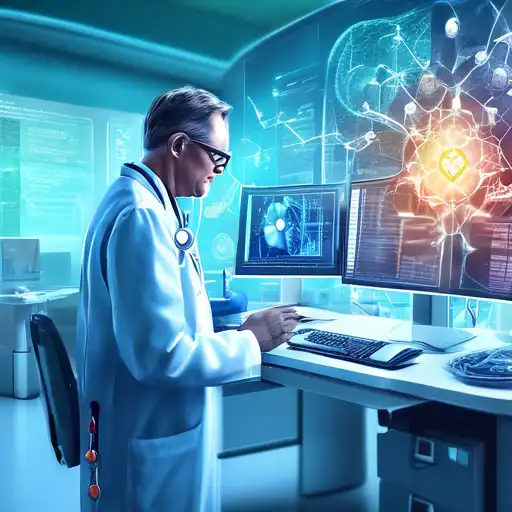The Transformative Impact of Data Science on Healthcare
In recent years, data science has emerged as a revolutionary force in healthcare, offering unprecedented opportunities to improve patient outcomes, streamline operations, and reduce costs. By harnessing the power of big data, machine learning, and artificial intelligence, healthcare providers can now predict epidemics, cure diseases, and improve quality of life in ways that were previously unimaginable.
Predictive Analytics in Patient Care
One of the most significant contributions of data science to healthcare is the development of predictive analytics. This technology enables healthcare providers to identify patients at high risk of chronic diseases, such as diabetes or heart disease, before they manifest. By analyzing patterns in historical and real-time data, predictive models can forecast potential health issues, allowing for early intervention and personalized treatment plans.
Enhancing Drug Discovery and Development
Data science is also revolutionizing the pharmaceutical industry by accelerating the drug discovery and development process. Through the analysis of vast datasets, researchers can identify potential drug candidates more efficiently, reducing the time and cost associated with bringing new medications to market. This not only speeds up the availability of life-saving drugs but also opens the door to personalized medicine, where treatments are tailored to the individual's genetic makeup.
Improving Healthcare Operations
Beyond patient care and drug development, data science is improving the operational aspects of healthcare. Hospitals and clinics are using data analytics to optimize staffing, reduce wait times, and manage inventory more effectively. These improvements not only enhance the patient experience but also contribute to significant cost savings for healthcare providers.
The Future of Data Science in Healthcare
As data science continues to evolve, its potential to transform healthcare is boundless. From wearable devices that monitor health in real-time to AI-powered diagnostic tools, the future of healthcare is data-driven. However, with these advancements come challenges, including data privacy concerns and the need for robust cybersecurity measures. Addressing these issues will be critical to fully realizing the benefits of data science in healthcare.
In conclusion, data science is playing a pivotal role in shaping the future of healthcare. By leveraging the power of big data and advanced analytics, healthcare providers can offer more personalized, efficient, and effective care. As technology continues to advance, the possibilities for improving health outcomes and transforming the healthcare industry are endless.
